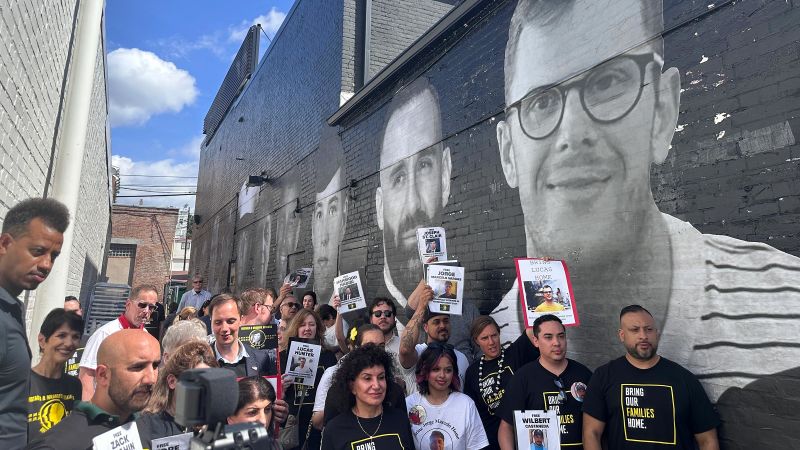Marc Fogel, an American teacher, has recently shared his harrowing experience of being imprisoned in Russia for over three years. He reflected on the profound emotional toll of his captivity, emphasizing the despair of feeling forgotten. This poignant sentiment encapsulates the struggles faced by many individuals who find themselves detained in foreign countries, often wondering if they will ever regain their freedom. Fogel’s release in mid-February marked a significant moment as he became one of the first American detainees to be freed during the second term of former President Donald Trump, symbolizing a glimmer of hope amidst the grim realities of international prisons.
Upon returning to Washington, D.C., Fogel stood in front of a mural that honors Americans detained abroad. The mural serves as a bold reminder of those still held and illustrates the collective effort of families advocating for the release of their loved ones. In an inspiring display of solidarity, Fogel spoke passionately about his commitment to work tirelessly for the release of other detainees. He expressed, “I am one of the lucky ones,” underscoring his gratitude while simultaneously recognizing the heartache experienced by others still in confinement.
The mural unveiling event was organized by the Bring Our Families Home Campaign, with contributions from artist Isaac Campbell, and marks the third iteration of this powerful project. It featured striking 10-foot-tall portraits of Americans currently imprisoned abroad displayed prominently on an alley wall in the Georgetown neighborhood. Such artistic representations not only raise awareness but also bring humanity to the plight of these individuals, giving them names and faces that are impossible to ignore.
Scott St. Clair, whose son Joseph is a veteran currently imprisoned in Venezuela, attended the event and highlighted the significance of the mural. He emphasized how it elevates the visibility of those who have been wrongfully detained, making it clear to the public and the government that they cannot simply be overlooked. Currently, nine Americans are designated as wrongfully detained in Venezuela alone. The mural shines a spotlight on these individuals, reminding the public and officials alike of the urgent need for action.
Among the detainees displayed are Ksenia Karelina, Mahmood Habibi, Lucas Hunter, and many others. Notably, the unveiling coincided with the release of Youras Ziankovich, one of the individuals represented in the mural, a serendipitous event that underscored the hope that these visuals could inspire further releases. The families of those depicted shared their grief and the emotions associated with their loved ones’ prolonged captivity. They spoke about the anguish that stems from knowing someone dear to them is enduring isolation, pain, and uncertainty.
One poignant testimony came from the granddaughter of Jorge Marcelo Vargas, who discussed the dire conditions her grandfather faces. She urged listeners to envision a loved one trapped in an unyielding confinement, devoid of light or connection. Such powerful imagery served to illustrate the reality that many families are forced to grapple with daily. The emotional pleas voiced at the event were complemented by calls for more governmental action to secure the release of detainees.
Patti St. Clair, mother of Joseph St. Clair, delivered a heartfelt request to U.S. leaders. She urged President Biden and members of Congress to leverage their influence and authority, sending a strong message that America does not abandon its citizens, even when they find themselves in perilous situations abroad. Her powerful words resonated with the gathered audience, encapsulating the urgency and moral imperative to advocate for those wrongfully detained globally.
In conclusion, Fogel’s return and participation in the mural unveiling shine a spotlight on the plight of Americans imprisoned overseas. The event served not only as a platform for personal narratives of suffering and hope but also as a rallying cry for action from both the public and government. It is a reminder of the ongoing struggle and the need for collective efforts to ensure the safe return of all those still in captivity.



